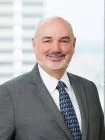Patent infringement litigation is expensive, and the cost of that litigation can make or break a company. By the same token, even our nation's largest and healthiest companies are spending millions of dollars on arguably meritless patent litigation brought by non-practicing entitites and, at the end of the case, they have nothing to show for it but a hefty legal bill. The Patent Act allows a successful party to recover its attorney fee expenses from the other party under certain circumstances. Even for a company that has succeeded in protecting a valuable patent against unsupported attack, however, such an award has remained an elusive dream. Recently the Supreme Court changed the rules on when a trial court can shift the cost of those fees to the other party.
Litigants are generally responsible for paying their own attorney fees, regardless of whether they win or lose, under the "American Rule." The Patent Act has long provided an exception to this general rule, allowing a judge to award attorney fees to the prevailing party in "exceptional" cases. 35 U.S.C. § 285. In recent years, however, rulings by the U.S. Court of Appeals for the Federal Circuit – the court that hears appeals of patent cases from all district courts – have made fee awards all but nonexistent. Indeed, the Federal Circuit employed a rigid framework that authorized the award of attorney fees under Section 285 in two very limited circumstances: (1) when there has been litigation misconduct, or (2) when the litigation is both brought in subjective bad faith and objectively baseless. On April 29, 2014, the Supreme Court rejected this framework for awarding attorney fees. Octane Fitness, LLC v. Icon Health & Fitness, Inc., 572 U.S. ___ (2014).
ICON Health & Fitness, Inc., a manufacturer of exercise equipment, is the owner of a patent for an elliptical exercise machine that may be selectively adjusted to match the stride of the user. ICON sued Octane Fitness, LLC, another exercise equipment manufacturer, alleging infringement of the patent. Octane was successful in defending the charges, ultimately obtaining a grant of summary judgment of non-infringement. Octane then asked the district court for an award of its attorney fees. According to Octane, the conclusion that its elliptical machines do not infringe ICON's patent would have been apparent to anyone who visually inspected them. The district court, applying the Federal Circuit's restrictive framework for Section 285, denied Octane's motion for attorney fees. The Federal Circuit, of course, affirmed the district court's ruling. The Supreme Court reversed.
In interpreting the language of Section 285, the Court considered the dictionary definition of "exceptional," which means "uncommon," "rare," or "not ordinary." Consequently, the Court gave "exceptional" its ordinary meaning, holding "that an 'exceptional' case is simply one that stands out from others with respect to the substantive strength of a party's litigating position (considering both the governing law and the facts of the case) or the unreasonable manner in which the case was litigated." Instead of applying an inflexible framework or precise formula, district courts are directed to consider the totality of the circumstances in ruling on a motion for attorney fees under Section 285.
Implicit in the Court's holding is the unmistakable conclusion that it is now easier for a litigant to recover its fees in a patent case. For example, under the previous standard, only independently sanctionable litigation misconduct would give rise to a fee award, whereas now unreasonable conduct that is not necessarily sanctionable can warrant an award of attorney fees. Likewise, the old framework required both objective baselessness and subjective bad faith, either one of which independently may now justify a fee award.
In essence, the Court took the unreachable Holy Grail of patent litigation and made it altogether attainable. But the Court did not stop there. It also rejected the Federal Circuit's requirement that a litigant establish its entitlement to fees by clear and convincing evidence. Now, the determination of whether a party is entitled to attorney fees under Section 285 is governed by a preponderance of the evidence standard.
The Court's holding in Octane Fitness thus gives the trial court great latitude to make case-by-case decisions within its equitable discretion as to when to award attorney fees to either the plaintiff or defendant.
In a separate opinion issued on the same day, the Supreme Court also ruled that the Federal Circuit must apply the abuse-of-discretion standard of review as to all aspects of a district court's Section 285 determination. Highmark Inc. v. Allcare Health Mgmt. Sys., Inc., 572 U.S. ___ (2014). This will raise a more difficult hurdle for a party challenging a trial court's award (or denial) of attorney fees under Section 285.
In sum, the Court's decisions in Octane Fitness and Highmark make it more likely that a party to a patent case may obtain an award of its attorney fees, and more likely that such an award will be affirmed if challenged on appeal.
This article is reprinted in its entirety with the permission of the ABA, Business Law Today, ©2014.
The content of this article is intended to provide a general guide to the subject matter. Specialist advice should be sought about your specific circumstances.
